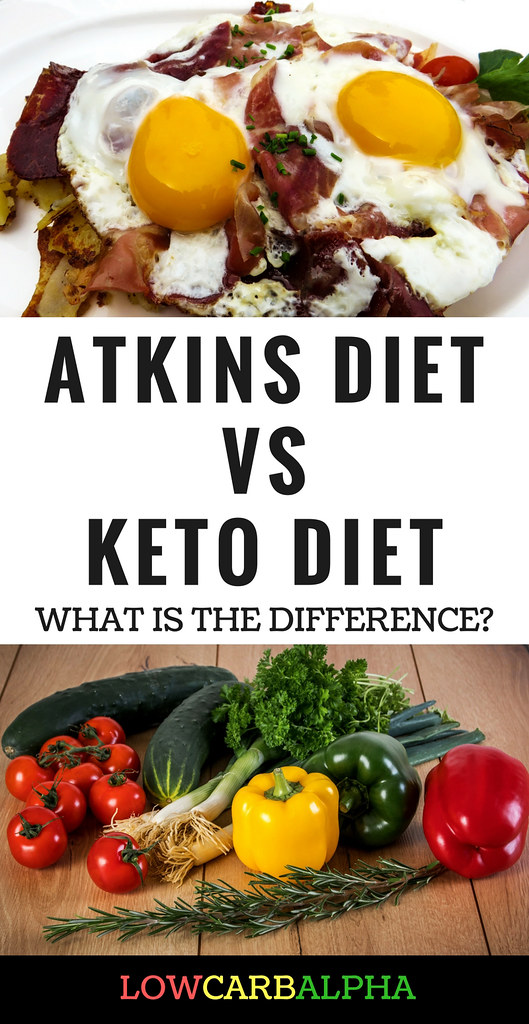The ketogenic diet has soared in popularity, promising a path to weight loss, improved energy, and various health benefits through a low-carbohydrate, high-fat approach. For many, it represents a transformative lifestyle change, offering a fresh perspective on nutrition and well-being. However, like any significant dietary shift, success isn’t guaranteed without a deep understanding and a mindful approach.
While the keto diet can indeed be effective, it’s not a magic bullet, and simply cutting carbs isn’t enough to unlock its full potential. There are common pitfalls—mistakes that health professionals and those experienced in wellness wish more people would avoid. These aren’t just minor missteps; they are the “worst” kinds of errors that can not only prevent you from seeing results but also compromise your overall health and well-being.
To truly thrive on a ketogenic journey, it’s essential to equip yourself with the right knowledge and strategies. In this in-depth guide, we’re diving into the most significant missteps people make, offering practical, actionable advice to help you navigate the keto landscape successfully. We’ll start by examining the foundational errors that can quickly derail your progress, ensuring you build a resilient and effective plan from day one.

1. **Starting the Keto Diet Without Consulting Your Doctor**
Embarking on any significant dietary change, especially one as impactful as the ketogenic diet, should ideally begin with a conversation with a healthcare provider. The context explicitly highlights the importance of “consulting your doctor, especially if you’re diagnosed with a medical condition and are taking medication.” This isn’t merely a recommendation; it’s a critical first step to ensure your personal safety and optimize your health outcomes. Overlooking this foundational step is one of the worst mistakes you can make, as it opens the door to unforeseen health complications.
Individuals with pre-existing conditions are particularly vulnerable when making drastic dietary changes without professional guidance. The text warns of specific risks such as “low blood pressure (if you’re currently taking blood pressure medication)” and “hypoglycemia (if you’re currently taking insulin and other diabetes medications).” These scenarios underscore how the keto diet can profoundly interact with existing health management plans, potentially leading to dangerous side effects that could have been easily mitigated or avoided with medical oversight. Your doctor can assess your current health status, review your medications, and advise if keto is a suitable and safe option for you.
A healthcare professional can also help you tailor the diet to your unique physiological needs, making adjustments that account for your specific medical history and lifestyle. They can provide personalized recommendations for monitoring key health markers and help you understand any potential risks or necessary modifications. This expert-driven approach ensures that your pursuit of wellness through keto is both effective and responsible, providing a vital layer of support and accountability that is difficult to achieve independently. It’s about building a partnership for your health success.

2. **Neglecting Proper Education and Understanding of the Diet**
Many people approach the ketogenic diet with enthusiasm but without a comprehensive grasp of its principles beyond simply cutting carbohydrates. The context states that “education is key to implementing it successfully.” A significant mistake highlighted is that “a lot of people focus on limiting carbohydrates without considering other aspects of the keto diet.” This narrow focus can lead to a host of problems, preventing individuals from achieving ketosis, experiencing desired weight loss, and ultimately impacting their overall health negatively. True success on keto requires more than just avoiding bread.
Without proper education, individuals might struggle to understand the nuances of macronutrient ratios, food quality, and the body’s adaptation process. This oversight often results in a diet that is technically low-carb but nutritionally unbalanced, leading to potential issues such as “micronutrient deficiencies.” These deficiencies, as the text cautions, “could ultimately result in a wide range of problems, from increased infections to an increased risk of osteoporosis, heart disease, and cancer.” A superficial understanding of keto can therefore have serious long-term consequences, undermining the very health goals the diet aims to achieve.
Effective education goes beyond just reading a few articles; it involves understanding the science behind ketosis, learning how to read food labels accurately, and recognizing the difference between healthy fats and unhealthy processed options. It also encompasses knowing how your body responds to various foods and adjusting your intake accordingly. By committing to thorough self-education and seeking reliable sources, you empower yourself to make informed decisions that support sustained health and successful adherence to the diet, making your keto journey genuinely sustainable and beneficial.
Read more about: Your Ultimate Checklist: 12 Simple Steps to Prep Your Car for an Epic 5000-Mile Cross-Country Road Trip

3. **Not Knowing Your Individual Macro Needs**
A cornerstone of the ketogenic diet’s effectiveness lies in precise macronutrient management, yet “not knowing how many macros you need” is a pervasive mistake that can stifle progress. The ketogenic diet isn’t a one-size-fits-all approach; carbohydrate, fat, and protein requirements vary significantly from person to person based on factors like age, activity level, body composition, and specific health goals. Operating without a clear understanding of these personalized targets is akin to navigating a complex journey without a map, often leading to frustration and stalled results.
When individuals fail to calculate and adhere to their unique macro needs, they risk either consuming too many carbohydrates, which prevents them from entering or maintaining ketosis, or insufficient fat and protein, which can lead to hunger and muscle loss. The context lists “not in ketosis” and “not losing weight” as key signs that the diet isn’t working to your advantage. These outcomes are often direct consequences of mismanaged macros, highlighting how critical it is to establish and follow a personalized plan rather than relying on generic recommendations.
To rectify this common pitfall, dedicate time to accurately calculating your personalized macronutrient ratios. Tools and resources are available that can help determine optimal carb limits, protein targets, and fat intake for your specific body and goals. Once established, consistently track your food intake, at least initially, to ensure you are meeting these targets. This diligent approach will significantly increase your chances of successfully entering and remaining in ketosis, maximizing the diet’s potential for weight management and overall metabolic health.
Read more about: From Blockbuster to Bust: 12 Underestimated Reasons Why Celebrity Book Deals Fail to Connect with Readers

4. **Ignoring Food Quality Beyond Carb Counting**
A critical misconception among keto beginners is that as long as food is low in carbohydrates, its quality is secondary. However, the context explicitly advises “paying attention to food quality,” directly countering this detrimental oversight. Many people get so fixated on carb counts that they inadvertently fill their diet with highly processed foods that are technically keto-friendly but devoid of essential nutrients and potentially harmful in the long run. This mistake transforms a potentially health-promoting diet into one that might still lack vitality.
The repercussions of neglecting food quality are significant and far-reaching. The context warns that incorrect keto implementation “leads to micronutrient deficiencies.” These deficiencies are not benign; they “could ultimately result in a wide range of problems, from increased infections to an increased risk of osteoporosis, heart disease, and cancer.” Consuming nutrient-poor, processed foods, even if they fit the macro profile, starves your body of the vitamins, minerals, and antioxidants it needs to function optimally, compromising your immune system and long-term health.
To avoid this, make a conscious effort to prioritize whole, unprocessed foods. Focus on healthy fats from sources like avocados, olive oil, and fatty fish; quality proteins from grass-fed meats, pastured poultry, and wild-caught seafood; and nutrient-dense, low-carb vegetables. By emphasizing real food, you not only ensure proper macronutrient intake but also flood your body with the vital micronutrients necessary for robust health, robust energy levels, and sustained well-being, elevating your keto journey beyond mere carb restriction.
Read more about: Is Your Electric Bill Giving You Nightmares? 14 Epic Ways to Slash Your Costs, Starting Today!

5. **Failing to Achieve or Sustain Ketosis**
The fundamental goal of the ketogenic diet is to shift your body into a state of ketosis, where it primarily burns fat for fuel instead of carbohydrates. One of the clearest “signs you’re doing keto wrong” is “not in ketosis.” This failure means you’re not experiencing the core metabolic benefits of the diet, effectively undermining your entire effort. Without sustained ketosis, you might find yourself in a nutritional limbo, not quite burning fats efficiently and also missing out on the carbohydrate energy you’ve restricted.
Numerous factors can contribute to failing to reach or maintain ketosis, often linked to other common mistakes. These include consuming too many hidden carbohydrates, especially from processed foods or certain dairy products, or an inconsistent adherence to the diet’s strict macro guidelines. Even seemingly small deviations can knock your body out of ketosis, leading to stalled progress and a feeling of frustration. The body needs consistent, low-carb intake to make the metabolic switch and adapt to burning ketones effectively.
The consequences of not being in ketosis are tangible. The context mentions “not losing weight” as a key sign of incorrect implementation. Beyond weight management, you might also experience “persisting flu-like symptoms (also called the keto flu),” indicating that your body is struggling to adapt to the new fuel source without fully transitioning into fat-burning mode. To ensure you’re in ketosis, consistently monitor your carbohydrate intake, prioritize healthy fats, and consider using ketone testing strips or breath meters to track your progress and make necessary adjustments to your dietary approach.

6. **Not Managing Electrolyte Balance**
One of the initial challenges many people face on the ketogenic diet, and a definitive “sign you’re doing keto wrong,” is “electrolyte imbalances.” When carbohydrate intake is drastically reduced, the body excretes more water and, along with it, essential electrolytes such as sodium, potassium, and magnesium. This rapid depletion can lead to a range of unpleasant symptoms, often mistaken for the “keto flu,” and can severely impact your ability to feel good and perform optimally on the diet.
The physical manifestations of an electrolyte imbalance can be quite debilitating. The context points to “feeling very exhausted and unable to sustain a workout” and “insomnia” as telltale signs. Without adequate electrolytes, your muscles may cramp, your energy levels can plummet, and your sleep quality can suffer, making adherence to the diet feel significantly more challenging. These symptoms are your body’s way of signaling distress, indicating a crucial nutritional gap that needs immediate attention for your comfort and continued progress.
Proactive electrolyte management is paramount for a successful and comfortable keto transition. This involves not only conscious hydration but also strategic intake of electrolyte-rich foods and, often, supplementation. Consuming sufficient sodium through salting your food generously and enjoying bone broth can be beneficial, as can incorporating foods rich in potassium (like avocados and leafy greens) and magnesium (like nuts, seeds, and dark chocolate). Addressing electrolyte imbalances promptly transforms the initial weeks of keto from a struggle into a much smoother and more energizing experience.
Navigating the ketogenic diet successfully isn’t just about avoiding initial missteps; it’s also about understanding the more subtle, yet equally impactful, errors that can derail long-term wellness. As you settle into a keto lifestyle, new challenges can emerge, affecting everything from your energy levels to your overall health. This second section delves into those advanced pitfalls, offering insights to ensure your journey is not only effective but also sustainable and truly nourishing.
Read more about: Unpacking the Past: 10 Outdated Blood Pressure Medications That Modern Medicine Has Moved Beyond

7. **Ignoring Persistent Food Cravings**
When you embark on the ketogenic diet, the expectation is often that cravings for sugary or carb-heavy foods will simply disappear. While many report a reduction in appetite and cravings once fully fat-adapted, persistent “increased food cravings” are a clear sign that the diet might not be working to your advantage, as noted in the signs of incorrect keto implementation. Ignoring these signals is a mistake that can lead to frustration, eventual dietary fatigue, and even abandonment of your health goals.
These cravings aren’t just a matter of willpower; they often point to underlying imbalances or unmet nutritional needs. Perhaps your fat intake isn’t sufficient to keep you satiated, or your protein isn’t adequate to prevent hunger pangs. Psychological factors, like using food for comfort or stress relief, also play a significant role. Failing to address these deep-seated triggers can make long-term adherence to keto feel like a constant battle, rather than an empowering lifestyle choice.
To effectively manage cravings, it’s crucial to first assess your macronutrient intake, ensuring you’re consuming enough healthy fats and proteins to feel truly full and satisfied. Prioritize whole, unprocessed keto-friendly foods that offer both satiety and micronutrients. Hydration also plays a vital role, as thirst can often be mistaken for hunger. Learning to distinguish between genuine hunger and emotional cues will empower you to make more mindful choices, transforming craving management into a key pillar of your sustained wellness on keto.
Read more about: Unmasking the Saboteurs of Your Sleep: 15 Critical Routine Flaws Derailing Your Recovery Journey

8. **Neglecting Digestive Health**
While the ketogenic diet can be transformative, many individuals encounter significant “digestive issues like diarrhea and constipation” if they don’t approach it mindfully. These uncomfortable symptoms are not an inherent part of the keto journey but rather a clear indication that something is amiss in your dietary strategy. Overlooking these warning signs can severely impact your quality of life and potentially compromise nutrient absorption, turning a health-focused diet into a source of discomfort.
The rapid shift from a carb-rich diet to a low-carb, high-fat one drastically alters your gut environment. A sudden reduction in dietary fiber, which is common if individuals cut out grains and fruits without replacing them with fiber-rich low-carb vegetables, often leads to constipation. Conversely, an increase in fat, especially if not introduced gradually or consumed with sufficient hydration, can sometimes cause diarrhea. Both scenarios disrupt the delicate balance of your gut microbiome, impacting overall digestive function.
To cultivate robust digestive health on keto, focus on incorporating a variety of low-carb, fiber-rich vegetables into your meals, such as leafy greens, broccoli, and cauliflower. Ensuring adequate water intake throughout the day is paramount, as is consuming enough healthy fats from sources like avocados and olive oil, which can aid regularity. Some individuals also benefit from probiotic-rich foods or supplements. By prioritizing gut health, you can prevent these common pitfalls and ensure your body is optimally processing the nourishing foods you consume.
Read more about: The 15 Wildest Lies Celebrities & Influencers Tell About Their ‘Perfect’ Bodies (And What’s Really Going On)

9. **Struggling with Low Energy and Insomnia**
One of the touted benefits of the ketogenic diet is sustained energy and mental clarity, yet for some, the experience is marked by persistent fatigue and sleeplessness. The context points to “feeling very exhausted and unable to sustain a workout” and “insomnia” as definitive “signs you’re doing keto wrong.” This chronic lack of energy and disturbed sleep not only undermines the promise of the diet but also significantly impacts daily life, hindering productivity, mood, and physical performance.
These energy and sleep disturbances often stem from multiple factors, extending beyond the initial ‘keto flu’ phase. While electrolyte imbalances are a common culprit for early fatigue, prolonged low energy can also signal insufficient caloric intake, especially if you’re very active. Furthermore, inconsistent adherence to macros can prevent the body from fully adapting to burning fat for fuel, leaving you in a metabolic limbo. Stress and poor sleep hygiene, exacerbated by dietary changes, can create a vicious cycle that depletes your energy reserves and disrupts restful sleep.
To reclaim your energy and improve sleep on keto, it’s vital to address the foundational aspects of your diet. Ensure your electrolyte intake is consistent and adequate, paying attention to sodium, potassium, and magnesium. Double-check that your caloric intake aligns with your activity level and goals; sometimes, a slight increase in healthy fats is all that’s needed. Prioritize consistent sleep routines, create a relaxing bedtime environment, and manage stress through practices like meditation or gentle exercise. Patience and consistent tracking are key as your body fully adapts to its new fuel source.
Maintaining stable blood sugar levels is another critical component for sustained energy and good sleep. When the body efficiently utilizes ketones for fuel, you should experience fewer energy crashes and a more balanced mood throughout the day. If you find yourself consistently feeling run down or struggling to get restorative sleep, it’s a strong indicator to re-evaluate your dietary composition and lifestyle habits, ensuring they support a truly revitalizing keto experience.
Read more about: Beyond ‘Toughing It Out’: 15 Critical Health Symptoms Men Must Never Ignore

10. **Overlooking Crucial Medication Interactions**
The initial consultation with a doctor is a foundational step for anyone considering the ketogenic diet, especially if you’re managing existing health conditions or taking medication. However, overlooking “crucial medication considerations” is not just an initial oversight but a continued advanced mistake that can have severe implications. The context specifically highlights the risks of “low blood pressure (if you’re currently taking blood pressure medication)” and “hypoglycemia (if you’re currently taking insulin and other diabetes medications)” as signs of incorrect implementation.
The ketogenic diet profoundly impacts the body’s metabolism, particularly how it processes glucose and manages fluid balance. For individuals on medications for conditions like hypertension or diabetes, these physiological shifts mean that previous dosages may no longer be appropriate, potentially leading to dangerous side effects. Continuing medication without medical supervision can result in dangerously low blood sugar levels for diabetics or exacerbate hypotension in those taking blood pressure medication, posing serious health risks that are entirely avoidable.
Therefore, ongoing communication with your healthcare provider is paramount. They can help monitor your vital signs, track key health markers, and make necessary adjustments to your medication dosages as your body adapts to ketosis. This collaborative, expert-driven approach ensures your health and safety throughout your keto journey, preventing serious complications that arise from unmanaged medication interactions. It’s about proactive management and informed decisions to safeguard your wellness.
Read more about: Debunking the Stigma: Unveiling the Truth Behind 13 Pervasive Mental Health Myths

11. **Failing to Address Long-Term Nutrient Balance**
While the initial focus on keto often revolves around carbohydrate restriction and fat intake, a significant advanced mistake is failing to consider “long-term nutrient balance.” As the context warns, incorrectly following the keto diet “leads to micronutrient deficiencies, which could ultimately result in a wide range of problems, from increased infections to an increased risk of osteoporosis, heart disease, and cancer.” This highlights that mere adherence to macro ratios isn’t enough; the quality and diversity of your food choices are critical for sustained health.
Many individuals fall into the trap of a ‘dirty keto’ approach, consuming highly processed, low-carb foods that fit the macro profile but offer little in the way of essential vitamins, minerals, and antioxidants. Over time, this narrow dietary focus can deplete your body’s stores of vital micronutrients, leading to a range of insidious health issues that may not manifest immediately but can severely impact long-term well-being. A truly healthy keto diet is one built on a foundation of nutrient-dense whole foods.
To ensure comprehensive long-term nutrient balance, prioritize a wide array of colorful, low-carb vegetables, such as spinach, kale, bell peppers, and asparagus, which provide crucial fiber and micronutrients. Diversify your protein sources with grass-fed meats, wild-caught fish, and pastured poultry, all rich in different vitamin and mineral profiles. Include a variety of healthy fats from sources like avocados, nuts, seeds, and olive oil. If dietary intake still feels insufficient, a targeted, high-quality multivitamin or specific supplements, taken under professional guidance, might be beneficial.
By actively pursuing a varied, nutrient-dense keto diet, you not only prevent the detrimental effects of micronutrient deficiencies but also fortify your body against long-term health risks like weakened immunity, bone density loss, and cardiovascular issues. This holistic approach transforms keto from a temporary diet into a sustainable lifestyle that genuinely supports vibrant health and longevity.
Read more about: Behind the Bench Press: Mastering 12 Major Technique Errors for Safe Mass and Strength Gains
The ketogenic diet offers incredible potential for weight management and metabolic health, but its true power is unlocked only when approached with knowledge, diligence, and a commitment to overall well-being. By understanding and actively avoiding these common mistakes—from the initial missteps to the more advanced pitfalls that affect long-term health—you can build a sustainable, nourishing, and truly effective keto lifestyle. Remember, success on keto isn’t just about cutting carbs; it’s about nourishing your body holistically, empowering it to thrive for years to come.



